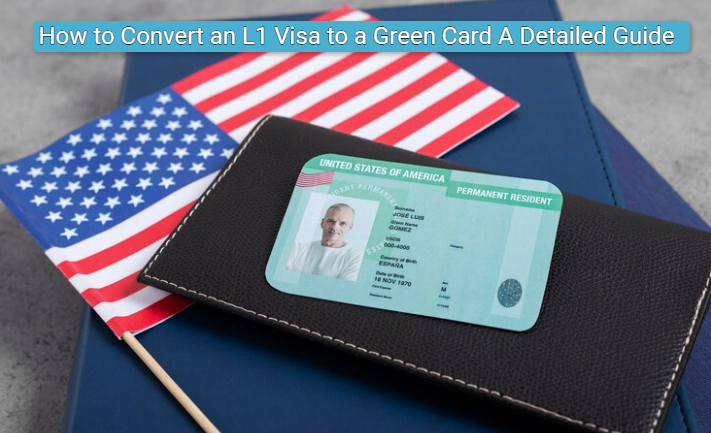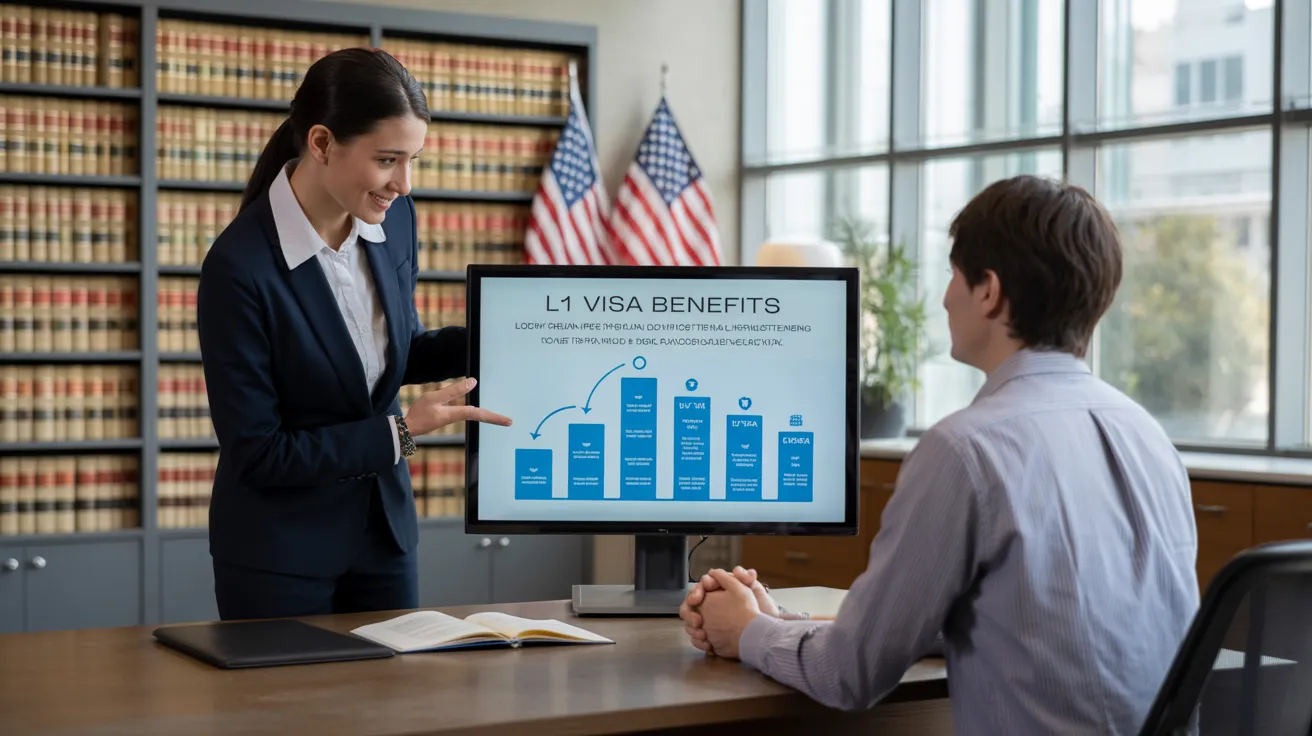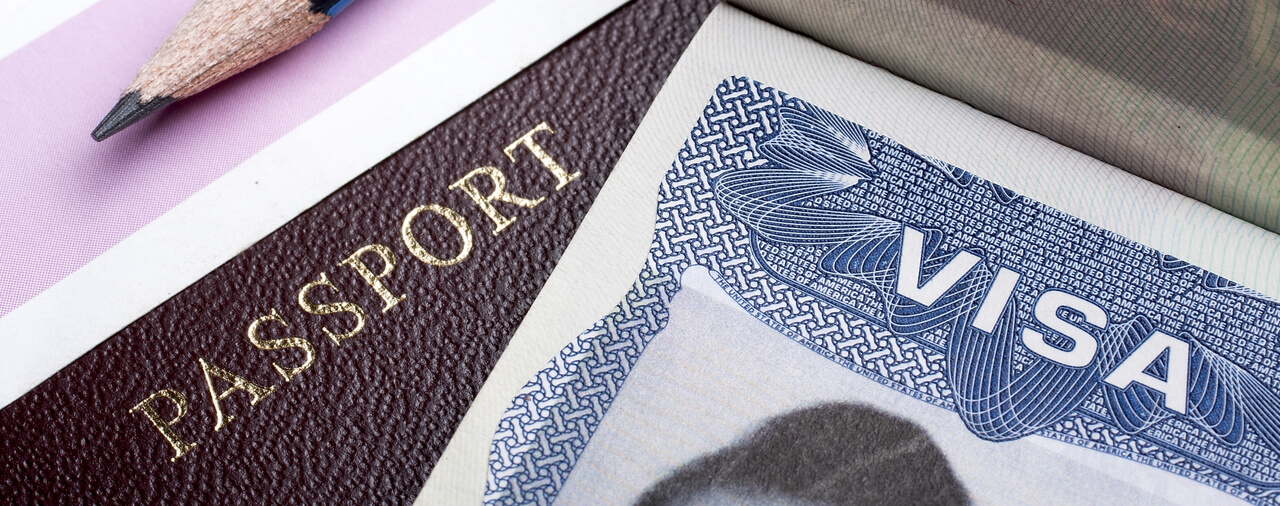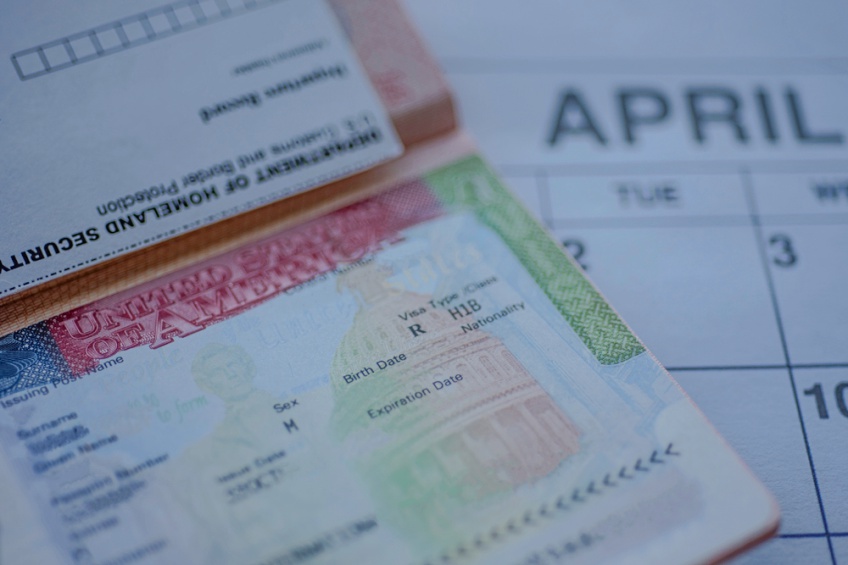L1 Visa Attorney Support
Unlocking Opportunities: A Comprehensive Overview to the L1 Visa Process
The L1 visa procedure provides an important pathway for multinational firms seeking to transfer key employees across borders. Comprehending the nuances of eligibility criteria, the differences between L-1A and L-1B visas, and the ins and outs of the application procedure can significantly impact an applicant's success. Steering this facility landscape is not without its challenges, and careful attention to documents and employer sponsorship is crucial. As we explore the crucial components of this process, the techniques for getting over potential obstacles will become obvious, exposing exactly how educated preparation can open up a world of chances.
Recognizing the L1 Visa
Understanding the L1 visa requires acknowledging its significance as a vital tool for multinational business looking for to move experienced employees in between global offices. This non-immigrant visa classification promotes the activity of execs, supervisors, and specialized expertise workers to the USA, therefore allowing organizations to keep operational continuity and harness global talent efficiently. The L1 visa is divided right into 2 primary categories: L-1A for supervisors and execs, and L-1B for employees having specialized knowledge.The L1 visa offers a crucial role in enhancing a business's one-upmanship in the international industry - L1 Visa. By allowing business to transfer their vital employees, services can assure that crucial tasks are taken care of by certified people that are currently acquainted with the company's culture and functional processes. This inner transfer mechanism not just fosters understanding sharing but additionally advertises innovation and partnership across borders.Moreover, the L1 visa is typically favored for its reasonably uncomplicated application procedure contrasted to various other visa groups, as it enables double intent, allowing owners to pursue irreversible residency while on a short-lived job visa. This attribute makes the L1 visa specifically appealing for both employers and staff members, as it enhances the path for proficient specialists to develop long-term residency in the United States
Eligibility Criteria
Eligibility for the L1 visa pivots on several key requirements that ensure both the employee and the company fulfill specific qualifications. This non-immigrant visa is designed for international companies to move staff members from foreign offices to united state counterparts.Firstly, the employer must be a qualifying organization, which includes a moms and dad company, branch, associate, or subsidiary of an U.S. organization. The firm should have been doing company for a minimum of one year both in the united state and abroad. This ensures that the firm has sufficient functional security and a reputable presence.Secondly, the worker must hold a supervisory, exec, or specialized knowledge setting. For L1A visas, the candidate must show managerial or executive credentials, while L1B visas concentrate on specialized knowledge pertaining to the company's products, solutions, or processes. Additionally, the employee must have worked for the international entity for a minimum of one constant year within the last three years before their application.Lastly, the staff member's role in the U.S. need to line up with their previous position, making certain that their skills and experience are leveraged for the business's advantage.
Sorts Of L1 Visas
The L1 visa category comprises two key kinds developed to help with the transfer of staff members within international business: the L1A visa for managers and execs, and the L1B visa for workers with specialized expertise. Each type serves unique purposes and has specific qualification criteria.The L1A visa is tailored for people that hold supervisory or executive positions within a firm. This visa allows top-level staff members to move to a united state branch, subsidiary, or affiliate of the exact same organization. Candidates for the L1A visa should demonstrate that they have been used in a managerial or executive capability for at the very least one constant year within the previous 3 years prior to their application. Additionally, this visa uses a longer period of keep, at first given for 3 years, with the opportunity of extensions for as much as seven years.In comparison, the L1B visa is intended for specialists with specialized expertise relevant to the company's items, services, or processes. To qualify, candidates have to show that their experience is essential to the organization which they have worked for at least one continuous year within the last three years in a function that needed this specialized expertise. The L1B visa is initially given for 3 years, with expansions available for approximately 5 years.Both visa kinds are necessary for business seeking to improve their global procedures by leveraging proficient workers, thus advertising development and efficiency within the U.S. market.
Application Process
Guiding via the L1 copyright process involves numerous vital steps that must be thoroughly followed to ensure a successful result. The process starts with the united state company, that need to first develop qualification by demonstrating a qualifying connection with the foreign entity and validating that the employee fulfills the specific requirements for the L1 visa classification being sought.Once qualification is verified, the company starts the procedure by submitting Form I-129, the Application for a Nonimmigrant Worker, with the U.S. Citizenship and Immigration Provider (USCIS) This kind needs to be accompanied by an in-depth summary of the job tasks to be performed, the organizational framework of both the united state and international entities, and the staff member's credentials. It's vital to verify that all info is precise and complete, as noninclusions or errors can cause hold-ups or denials.Upon authorization of the I-129 petition, the next step entails the staff member getting the L1 visa at an U.S. consular office or consular office in their home nation. This stage calls for the completion of Kind DS-160, the Online Nonimmigrant copyright, and arranging a meeting. During the meeting, the candidate has to provide proof sustaining their qualifications and the company's petition.After the visa is provided, the staff member can get in the United States to work in the assigned duty. On the whole, careful prep work and adherence to every step of the application process are necessary for an effective L1 visa outcome.
Needed Documentation

Crucial Types Needed
Maneuvering the L1 Visa procedure requires mindful attention to the essential types and documentation necessary for a successful application. The main type required is the Type I-129, Request for a Nonimmigrant Employee, which should be finished and sent by the united state company. This form details the information of the work deal and the qualifications of the employee looking for the L1 Visa.Alongside Form I-129, the applicant will certainly require to complete Type I-539 if accompanying household members are additionally looking for visas. Additionally, the employer has to provide evidence of the qualifying connection in between the united state entity and the foreign entity, usually necessitating the entry of corporate files such as write-ups of incorporation or financial statements.Moreover, it is important to consist of the L Category Supplement to Form I-129, which specifies the type of L Visa being requested-- either L-1A for managers and execs or L-1B for staff members with specialized knowledge. Finally, applicants should assure that all forms are signed and dated suitably, as incomplete submissions can lead to delays or denials. Appropriately setting up these vital types lays the foundation for a smoother L1 copyright procedure.

Supporting Evidence Needs
Supporting paperwork is essential for an effective L1 copyright, as it corroborates the insurance claims made in the request. Candidates should give a range of records to demonstrate qualification for the visa, which is classified right into two key kinds: proof of the qualifying relationship between the united state and international entities and evidence of the candidate's qualifications.To develop the relationship, candidates need to send paperwork such as corporate business graphes, economic statements, and proof of possession. These records validate that the international firm has a qualifying relationship with the united state company, whether as a parent company, subsidiary, branch, or affiliate.For the candidate's certifications, vital documents include an in-depth work letter from the foreign company, detailing the candidate's task title, obligations, and duration of work. Furthermore, academic qualifications, such as degrees and diplomas, ought to be offered to prove the applicant's expertise in the relevant area.
Company Sponsorship Documents

Common Obstacles
Navigating the L1 visa procedure presents several typical obstacles that applicants must be mindful of. Trick issues often consist of rigorous paperwork demands, possible hold-ups in handling times, and the need for strict lawful conformity. Understanding these barriers can assist candidates better prepare and mitigate dangers throughout their copyright trip.
Documents Requirements
The L1 copyright procedure frequently provides significant obstacles associated to paperwork requirements. Applicants should give considerable paperwork to develop eligibility, which can cause confusion and potential delays. Key documents consist of proof of a certifying partnership between the U.S. and international employer, evidence of the candidate's work background, and comprehensive information concerning the task function in the U.S.One usual obstacle is collecting enough evidence to demonstrate the nature of the certifying partnership. Business commonly struggle to existing clear organizational graphes or financial statements that illustrate the link in between the entities. Furthermore, guaranteeing that letters of support from companies precisely show the applicant's task duties and qualifications is necessary, as vague summaries can lead to denials.Another problem arises from the requirement for detailed job descriptions that line up with the L1 visa categories. Applicants should verbalize not only their current role however additionally their supervisory or specific expertise responsibilities plainly. This demands a thorough understanding of both the candidate's setting and the regulative language utilized in L1 applications.
Handling Dead Time
Experiencing hold-ups in processing times is a typical obstacle dealt with by L1 visa candidates, commonly resulting in irritation and uncertainty. Several variables add to these hold-ups, including high application volumes, boosted analysis of applications, and administrative backlogs within the U.S. Citizenship and Immigration Provider (USCIS) Candidates might locate that processing times can differ considerably depending upon the service facility handling their application, as each center has its own workload and performance levels. In addition, the intricacy of the candidate's situation, such as the need for substantial documentation or information, can even more expand wait times.In some circumstances, concerns connected to the candidate's current migration standing or previous visa background might also cause added hold-ups, as USCIS may require additional review or information. It is crucial for prospects to remain aggressive during this period, preserving open communication with their companies and legal representatives to resolve any prospective concerns promptly.Understanding these handling time obstacles can help L1 visa applicants plan for possible hold-ups and reduce the effect on their change and occupation strategies. Persistence and diligence are necessary virtues in navigating this intricate process.
Lawful Compliance Issues
Numerous L1 visa applicants experience legal conformity issues that can complicate their journey toward acquiring the visa. Understanding and adhering to the details guidelines set by the united state Citizenship and Immigration Provider (USCIS) is important. Usual challenges include demonstrating the certifying connection between the international and U.S. employers, as well as showing that the candidate possesses the requisite specialized expertise or supervisory capacity.Additionally, applicants must give detailed documentation describing their job tasks, corporate structure, and monetary viability of the united state entity. Insufficient or incorrect paperwork can cause delays and even rejections. Employers should also ensure that they abide by labor laws, consisting of wage and working condition criteria, which can affect visa eligibility.Another typical issue includes maintaining conformity with the regards to the visa when granted. Changes in work condition, job duties, or company structure can demand modifications to the visa, which if not attended to without delay can result in lawful difficulties. Consequently, remaining notified concerning conformity requirements and seeking lawful counsel when necessary is important to browse the intricacies of the L1 visa process effectively.
Tips for Success
Success in the L1 copyright process commonly hinges on careful preparation and focus to detail. To improve your possibilities of authorization, begin by completely recognizing the qualification requirements for both the L1A and L1B visa classifications. Assess whether your setting at the firm certifies as supervisory, exec, or specialized expertise, as this categorization notably impacts your application.Next, gather extensive paperwork that confirms your cases. This consists of organizational charts, in-depth task descriptions, and proof of the business's functional structure. Clear and succinct evidence of the qualifying relationship between the united state entity and the foreign entity is important. Verify that all papers are organized logically and presented in an expert way, as this reflects your commitment and seriousness regarding the application.Engage the services of a knowledgeable immigration attorney that specializes in L1 visas. Their competence can show invaluable, directing you through complicated guidelines and guaranteeing that all paperwork abides by present laws. In addition, prepare for the interview by practicing response to common concerns and being ready to review your function and payments to the company extensive.
Frequently Asked Inquiries
Can Family Members Members Come With the L1 Visa Holder?
Yes, family members of L1 visa owners, consisting of partners and unmarried youngsters under 21, can come with the key visa holder. They may additionally use for L2 visas, which allow them to stay in the United States.
How Lengthy Can I Stay on an L1 Visa?
The L1 visa enables initial stays of up to 3 years, with the opportunity of expansion. L1A visa owners might stay for an optimum of seven years, while L1B visa owners can stay for five years.
Can L1 Visa Owners Use for a Permit?
Yes, L1 visa owners can make an application for an environment-friendly card. L1 Visa Requirements. They may pursue long-term residency with employment-based classifications, commonly calling for sponsorship from their employer, given they meet the necessary credentials and read more documents needs
What Occurs if My L1 copyright Is Rejected?
If your L1 copyright is rejected, you may get a notice outlining the reasons for rejection. You can look for to appeal the choice, reapply, or explore alternative visa choices based upon your scenarios.
Exist Any Kind Of Travel Constraints With an L1 Visa?
An L1 visa typically permits global travel; nonetheless, re-entry to the U. L1 Visa Requirements.S. is contingent upon keeping valid standing. Travelers ought to guarantee conformity with visa problems to stay clear of difficulties upon return
Verdict
